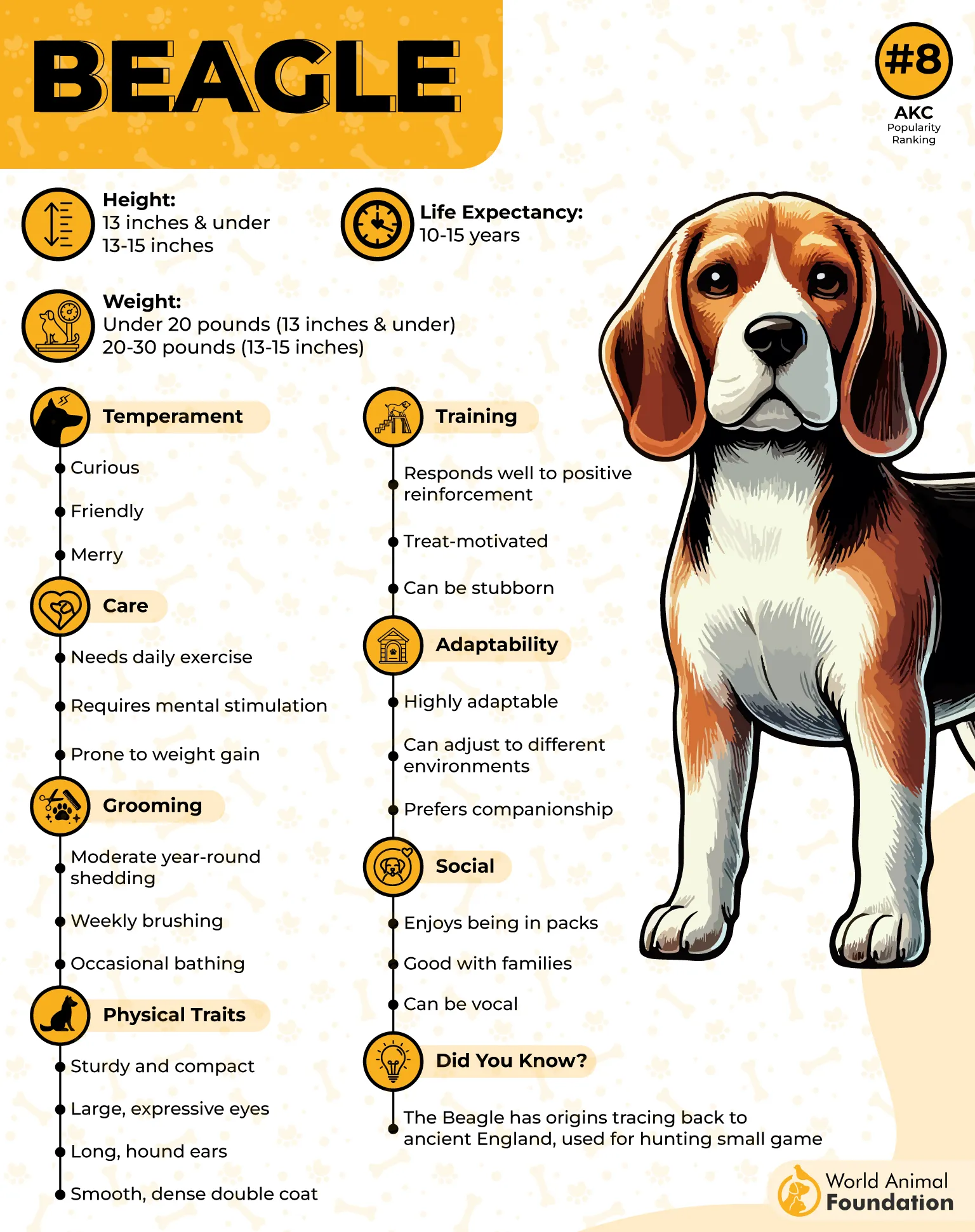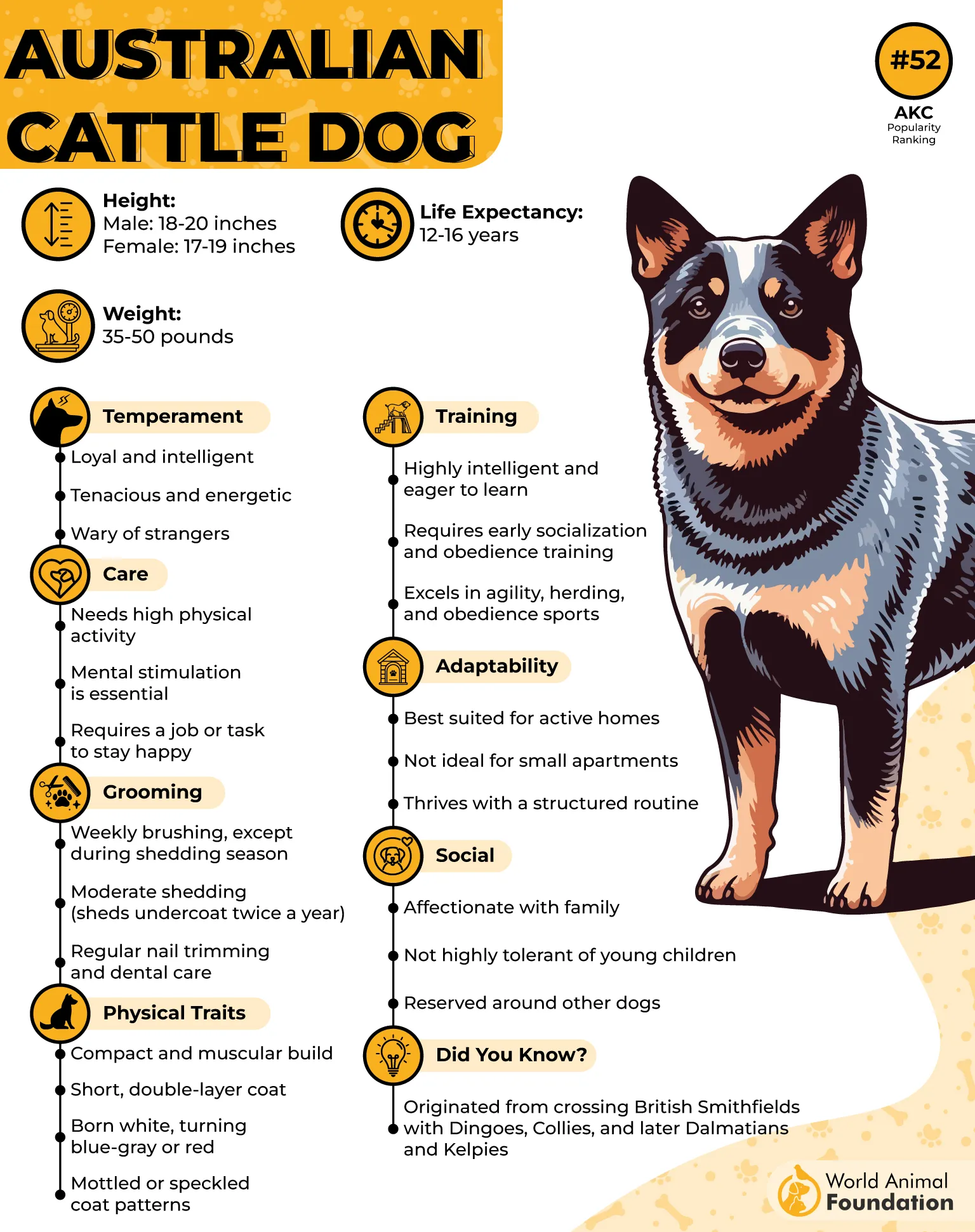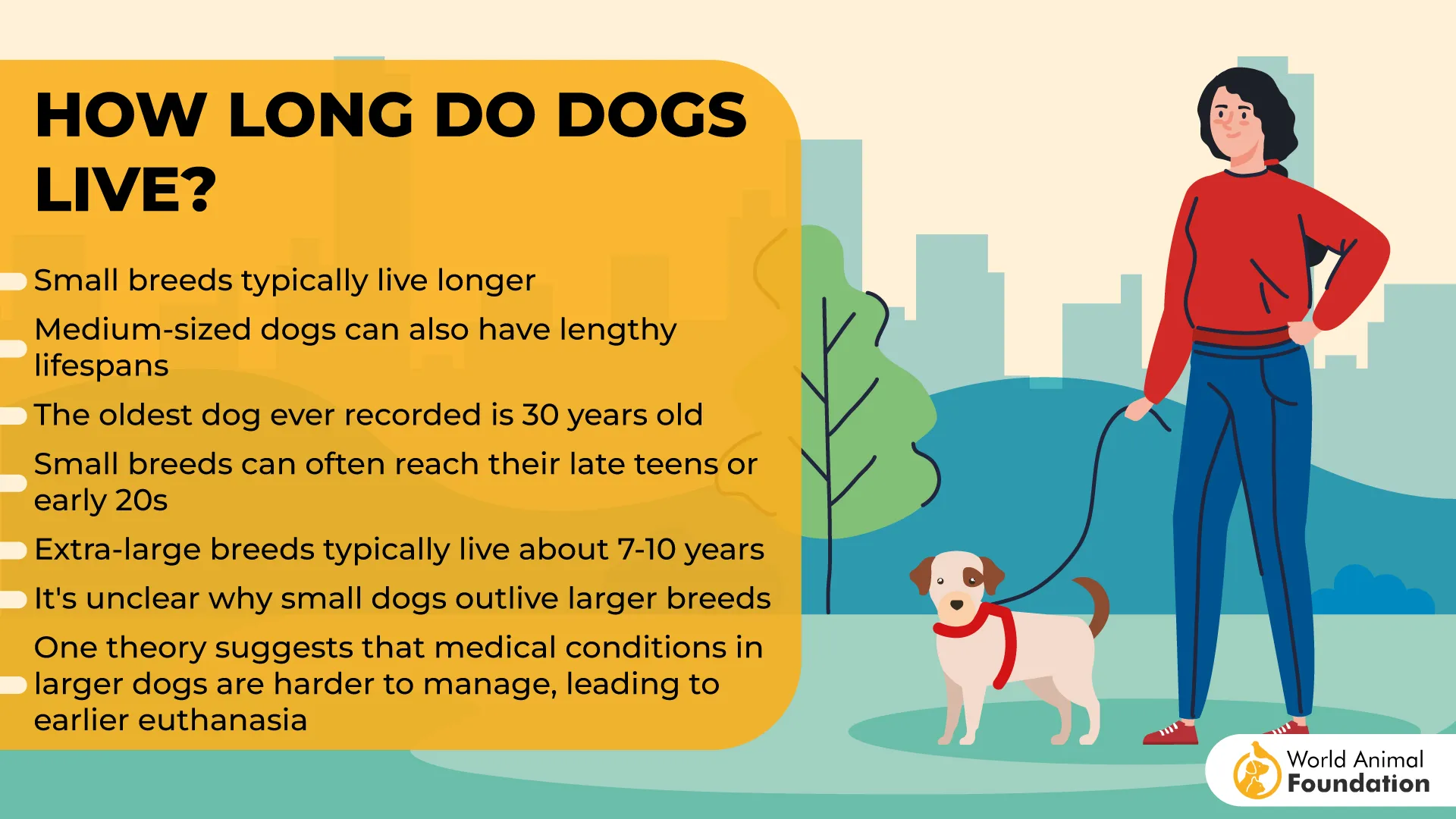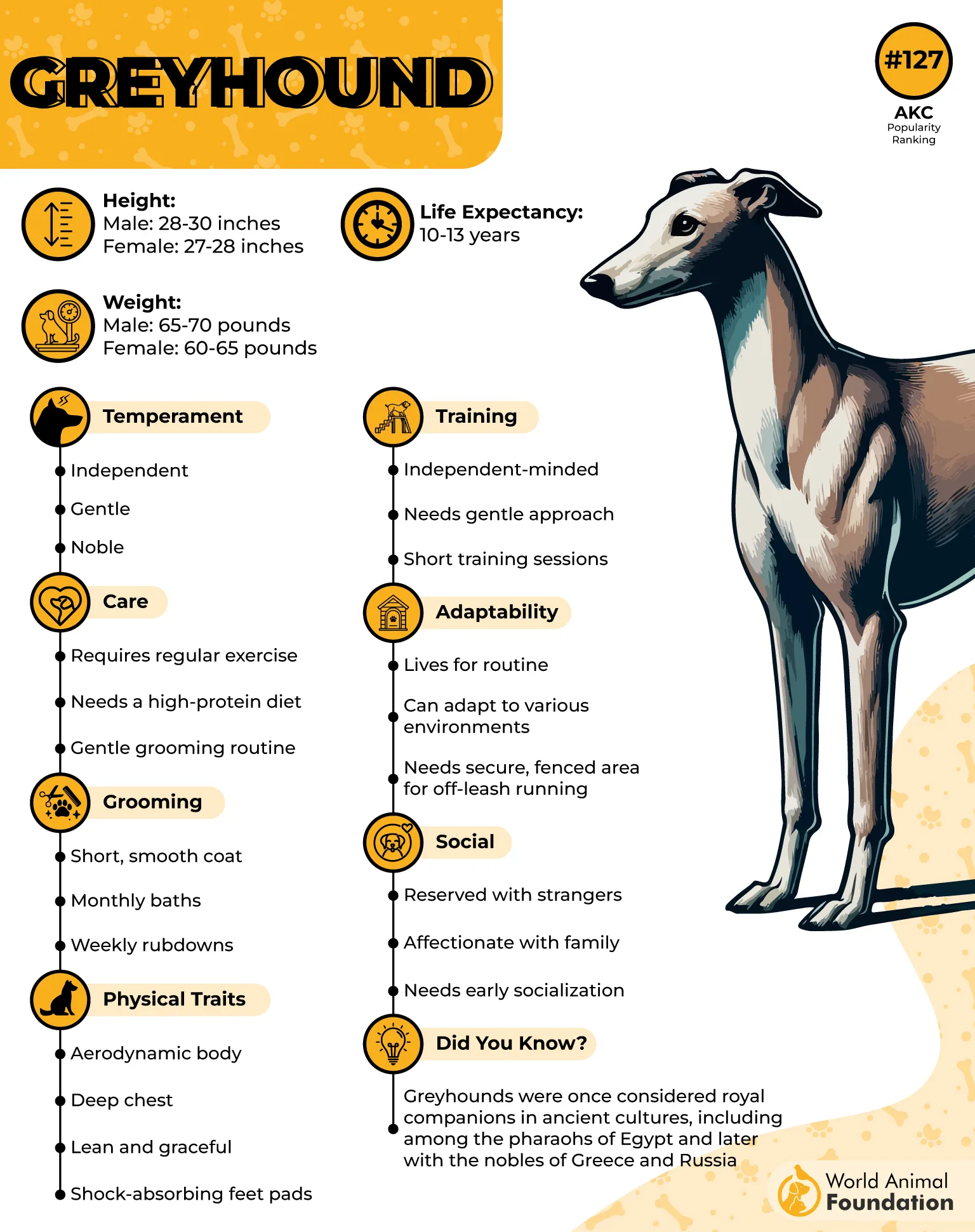Did the viral season get to you, and now you’re wondering (after sneezing for the 50th time) how immune your dog is against such outbreaks and infections? We feel you! Concern about their dog’s health is a good pet parent’s job description.
All dog breeds can be prone to certain diseases and viruses, but some have a genetically stronger immune system than other breeds. Again, it doesn’t mean they can’t get sick; you’ll still need to get them properly vaccinated (after consulting with your vet) and take appropriate precautions.
Wondering if your pet is one of the healthiest dog breeds or not? We’ve compiled a list of 10 dogs with the strongest immune systems that are resilient against disease and outbreaks.
Dog Breeds with Strong Immune System
1. Poodle

When you look at a Poodle, you might think you’re looking at a delicate diva you need to protect at all costs (which isn’t a bad idea). The truth is that Poodles are quite strong when it comes to being resilient against illnesses and viruses due to their strong immune system.
Whether it’s a standard Poodle, a toy Poodle, or a miniature Poodle, this breed has a bouncy and enchanting personality that makes it a favorite family pet. If bred by a responsible breeder, they’re a healthy breed prone to fewer health issues.

Poodles have been all over the place; it’s the national dog of France, have been depicted in German historical artworks, and are now one of the most loved pets throughout the globe.
They’re well-adapted to different climates, and their hypoallergenic coats are water-resistant, which is a perk because Poodles enjoy swimming a lot.
Despite their strong immune system, Poodles are prone to some genetic conditions like: Idiopathic epilepsy, von Willebrand’s disease, Legg-Calve-Perthes, and luxating patellas.
2. Beagle

Beagles are dogs with a friendly nature and love to spend time with their pet parents. With their expressive eyes and droopy ears, they find a place right in the heart of their humans.
These cute dogs are generally healthy with fewer health problems if given proper care.

Beagles are little scent hounds and were originally bred to hunt small game like rabbits. While their short, square muzzle makes them chase strange scents, they are generally amiable to their pet parents. Beagles can stay healthy with proper nutrition and care.
Like all dogs, Beagles are also predisposed to certain health conditions, some of which are: hip dysplasia, hypothyroidism, luxating patella, epilepsy, and eye disease.
3. Australian Cattle Dog

Australian Cattle Dogs look like they’re residents of wild terrains with their athletic physique and thick double coat. Also called red or blue heeler due to their colors, these canines are developed to be enduring and brave. This sturdy breed remains in good health and needs a really active lifestyle.

With a long lifespan of 12 to 16 years, these strong dogs tend to be resilient against seasonal and genetic diseases. Like all dogs, they’re prone to some genetic health issues, but with early screening and mental and physical stimulation, they thrive without much trouble due to a strong immune system.

The health conditions likely to be found in these dogs are progressive retinal atrophy, deafness, and hip dysplasia. Regular checkups are important in keeping them safe and healthy.
4. Greyhound

Greyhounds are agile sight hounds known for their speed and high energy levels. They’re prone to minimal genetic health issues and thrive on regular exercise and being provided with a space to run around.
The American Kennel Club calls Greyhounds the “cheetah of the dog world”. They have a spectacular lean and tall build that allows them to move with grace and pursue any prey. They do have a strong prey drive and need early obedience training to be able to control it.

They make great companions for active owners and are ideal for outdoor activities like running and hiking. Even the healthiest dogs are prone to some health conditions. In Greyhounds, these conditions are: bloating and gastric torsion, cardiac issues, eye issues, and a condition specific to these dogs called Greyhound neuropathy.
5. Havanese
With an impressive average lifespan of 14 to 16 years, Havanese are native to Cuba and possess the most loving personality for their owners. Despite being small dogs, Havanese live healthy lives with a balanced diet and good care.
Havanese will leave a mark on your heart with its adorable face and affectionate eyes. Its fluffy coat makes it even more cuddle-worthy and an amazing lap dog. This small breed is big in smartness and is a joy to teach new tricks to.
Havanese have a good immune system, but they are susceptible to some health conditions like progressive retinal atrophy and patellar luxation.
6. Bichon Frise
We need to give these tiny dogs some credit for being little bundles of awesomeness. They’re not just too adorable to handle with their fluffy white coats, they’re also one of the healthiest pups with long life spans of 14 to 15 years.
Bichons have good overall health, especially if given the right diet and with regular vet visits. They’re predisposed to fewer hereditary diseases but can develop conditions like Diabetes Mellitus and Cataracts, as per PetMD.
Bichons are very sociable pups and make friends with the kids in the family easily. They love to be the center of attention, and if they get bored, they can get into barking and chewing to cope.
7. Chihuahua
Chihuahuas are spunky, compact dogs that live long and healthy lives without dealing with a lot of health problems. They have a playful nature and will enjoy some indoor games, including mental stimulation activities like puzzles.
Though Chihuahuas face minimal health issues throughout their lives, it’s important to notice that they’re prone to obesity, which can lead to some other issues. Make sure to talk to your vet about their diet plan and keep them engaged in moderate activity indoors.
Chihuahuas are budget-friendly, low-maintenance dogs that are easy to care for and even easier to love. Known for their good health and loyal nature, they make excellent companion pets and can thrive in family settings, especially when treated with kindness and respect.
8. Siberian Husky
Siberian Huskies are beautiful dogs with a fox-like appearance. Originally bred as working dogs, they used to pull sleds for their human companions in the harsh regions of Siberia. They’re naturally resilient dogs and maintain good health if given proper physical activity.
Sibes are loyal and affectionate companions that will be by your side through thick and thin. They’re very well suited for cold climates due to their dense double coats that keep them safe against the elements.
For our strong Siberian Huskies, some genetic issues to watch out for are hip dysplasia and eye disease (though their chances of developing these issues are very low). To stay happy and healthy, they need daily exercise like long walks, runs, or active play sessions to burn off their boundless energy.
9. Basenji
Basenjis are very vigorous dogs that sometimes exhibit a cat-like personality due to their independent nature. They’re the Kings or Queens of their own little dog kingdom and tend to be aloof towards strangers. These active pups generally remain healthy due to their genetically strong immune system.
Basenji is a quite ancient dog breed and has been found in some cave paintings in Libya. They’re called “barkless dogs” due to their tendency to be less vocal, but they do have a characteristic sound called the “Basenji yodel”.
They’re predisposed to some genetic disorders like elbow dysplasia, hip dysplasia, and allergies. Always get in touch with a reputable and ethical breeder to ensure you find a healthy Basenji.
10. Whippet
Whippets are very fast dogs (reaching 35 miles per hour) that love to chase and live to run. They have a gorgeous, sleek body, little ears, and a pointy muzzle, making them stand out.
Whippets are gazehounds with the ability to capture their prey with their keen eyesight. They hunt in open fields and enjoy outdoor exercise, but they also make good indoor pets. As they lack a lot of body fat, it’s important to regulate their temperature when they’re outside.
They’re generally healthy dogs with a strong immune system, but WebMD also recommends getting them vaccinated against infections like rabies, etc.
Conclusion
If you’re ready to bring your resilient furry friend with an impeccable immune system, do ask the rescue center or breeder if they’ve been screened and vaccinated. Scheduling appropriate vet checkups is a practice that will ensure your dog’s well-being and your happiness.


